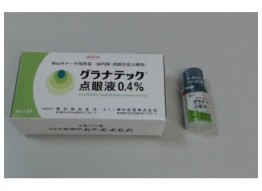What are Sigmart injections 12 mg for angina (nicorandil)?
Sigmar injections utilize the pharmacological properties of nicorandil, a nicotinamide ester compound known for its dual mechanism of action as a nitrate and an ATP-sensitive K+ channel agonist. This compound, when administered intravenously, exerts its therapeutic effects by targeting multiple pathways within the cardiovascular system.
Nicorandil's unique mode of action involves its interaction with nitrate receptors and ATP-sensitive potassium channels (KATP channels) present in vascular smooth muscle cells. By acting as a nitrate, nicorandil releases nitric oxide in the smooth muscle cells, which subsequently activates the guanylate cyclase enzyme, leading to an increase in cyclic guanosine monophosphate levels. Elevated cGMP levels result in the relaxation of vascular smooth muscle, leading to vasodilation.
Furthermore, nicorandil's influence on ATP-sensitive K+ channels enhances its vasodilatory effects. Activation of these channels promotes potassium efflux from the smooth muscle cells, leading to hyperpolarization and subsequent relaxation of the vascular smooth muscle.
This dual action ultimately decreases the calcium sensitivity of the smooth muscle, allowing for efficient relaxation and dilatation of coronary arteries. As a result, Sigmart injections with nicorandil offer notable therapeutic benefits, particularly in terms of coronary vasodilation.
Clinical studies have substantiated the efficacy of Sigmart injections in patients with various cardiovascular conditions. In cases of acute angina pectoris, the vasodilatory effects of nicorandil have demonstrated their efficacy by providing relief from the constriction and discomfort associated with anginal episodes. Moreover, Sigmart injections have proven to be effective in decreasing cardiac workload in patients suffering from heart failure, thus alleviating the strain on the heart.
Multiple clinical trials have highlighted the significance of intravenous nicorandil in the management of unstable angina and variant angina (also known as Prinzmetal's angina). Notably, even patients who are unresponsive to conventional antianginal therapies have shown positive responses to intravenous nicorandil. This underscores the potential of nicorandil as a valuable option for patients who have been refractory to other treatment modalities.
Active principles: nicorandil
Amount: 10 vials
Maker: Chugai Pharmaceutical Co., Ltd., Tokyo, Japan
Indications:
unstable angina pectoris,
acute heart failure.
How to use
For angina pectoris: In general, inject with intravenous infusion.
For heart failure: In general, inject continuously and intravenously.
The period of treatment with this medicine depends on the patient’s response to the treatment. The dosage may be adjusted by your doctor according to age, body weight and symptoms.
Contraindications: do not use for the following patients:
- pregnant and breastfeeding women,
- patients with hepatic, renal or cerebral dysfunction,
- patients with hypotension, cardiogenic shock, Eisenmenger syndrome, primary pulmonary hypertension, right ventricular infarction,
- patients with symptoms of dehydration,
- patients with neurocirculatory asthenia, glaucoma, left ventricular outflow tract stenosis in acute heart failure, hypertrophic obstructive cardiomyopathy or aortic valve stenosis.
Important information
Never take sildenafil citrate (Viagra), vardenafil hydrochloride hydrate (Levitra) or tadalafil (Cialis) while taking this medication.
As the patient may feel faint with decreased blood pressure, they should rest for a while during intravenous infusion and after its completion.
If an allergic reaction occurs, patient needs to stop using the medicine and consult with their doctor. If patient is taking any other medication or treatment, they should consult with their doctor in advance.



